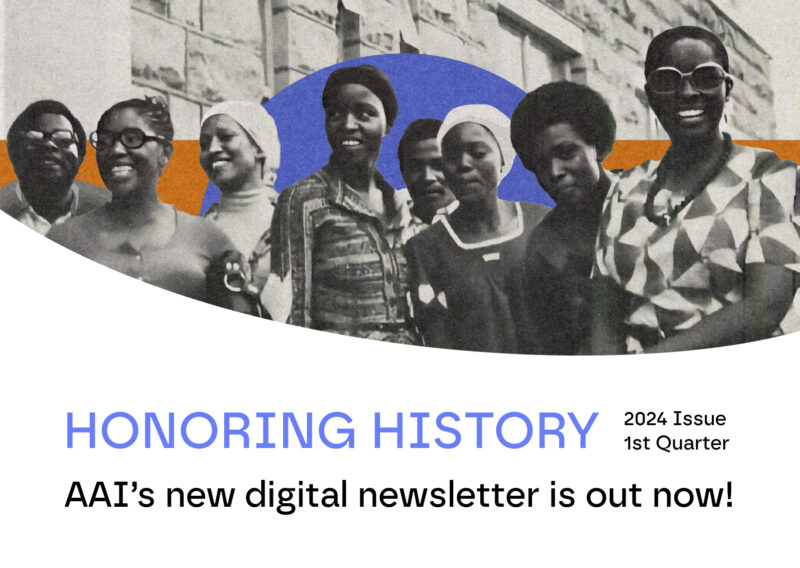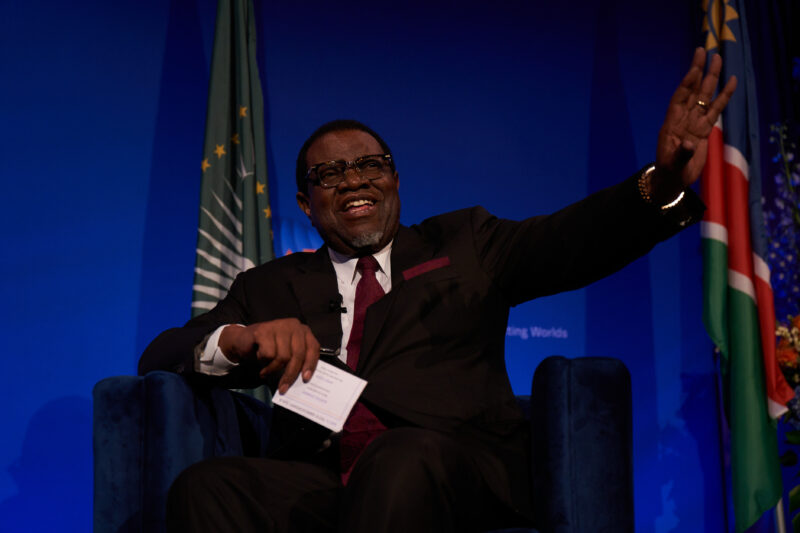From the Archives: Africa Speaks Out at the United Nations
AAI will feature a quarterly “From the Archives” blog, highlighting historical milestones in AAI and African history. This blog post features verbatim historical documents from AAI’s files and articles from Africa Report, a monthly publication of in-depth analysis and reports chronicling the continent’s dramatic political and economic developments.
Published from 1956 through 1995, Africa Report became the most significant Africa-focused publication in the U.S.
Africa Report, November-December 1985. Volume 30, Number 6
Africa Speaks Out at the United Nations
An impressive number of world leaders gathered in New York to commemorate the 40th anniversary of the United Nations in October [1985]. Among them were several African heads of state who used the occasion to make candid remarks to the General Assembly .
President Julius Nyerere, Tanzania: “Perhaps the most blatant example of international authoritarianism is the growing practice of threatening adverse consequences to small nations which use their United Nations votes in a manner displeasing to a strong power. We know from experience that this has been happening privately for some time. But now even the sense of propriety has gone; small and poor countries are being publicly threatened that they will be punished if they do not vote in accordance with the wishes of a member of this organization.
“We were colonies once; we are not colonies now. And speaking for Tanzania , we refuse to become a neo-colony of any country under the sun. We, Third World countries, did not win our independence — in Tanzania’s case with the help of the United Nations system — in order t o sell it to the highest bidder, nor even to buy off trouble by voting in the General Assembly at the behest of a veto power. We will use the only right our weakness leaves to us — the right to scream a protest at international bullying.”
President Kenneth Kaunda, Zambia: “It is most regrettable that after 40 years of the existence of the United Nations we are saddled with an irrationally over-armed world; while nuclear weapons threaten the existence of mankind. Indeed, most of the resources, both human and financial, allocated to scientific research and technological development are directed to serving military ends. How can we avoid the charge that we are all the time preparing for war? We call upon those who direct scientists and others now engaged in preparing for the destruction of the world to change direction and thence expend their efforts and ingenuity on mankind’s survival and on how best to fight the ‘wars’ against underdevelopment and the various inequalities that outrage the dignity of hundreds of millions of people…
President Abdou Diouf, Senegal:·The heads of states and governments of the OAU recognize that the external debt is an obligation which they must honor, but the deteriorating international economic situation means that Africa is faced with the paradox of being the least developed continent in need of the most basic development needs, and yet one which contributes net financial resources to the developed countries. Such a state of affairs cannot continue without irreversibly jeopardizing t he recovery of an entire continent.
“Until now, the only concession has been to negotiate the rescheduling of the debt, whether in the context of the Club of Paris or London. Even if rescheduling provides temporary relief, it is in effect merely a stop-gap measure, which in the medium term is a burden on the budget. Moreover, in our view, the rescheduling extends over too short a time span.




